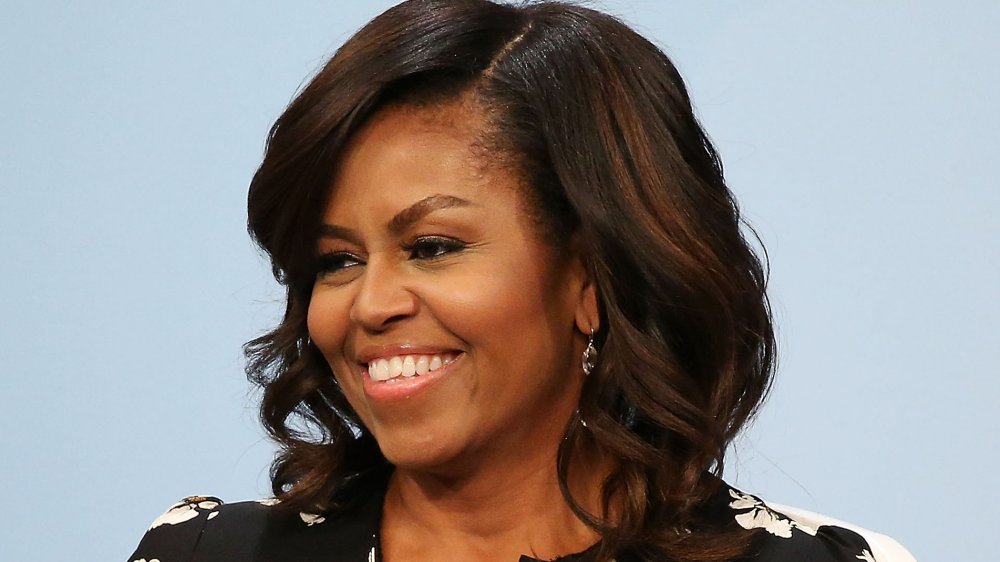The Truth About Michelle Obama's Fertility Struggles
Former first lady Michelle Obama has never shied away from publicly discussing vulnerable topics, as she has opened up about everything from issues in her marriage to the pain of having her two daughters, Sasha and Malia Obama, leave for college. "I feel vulnerable all the time," Michelle revealed to Oprah Winfrey in 2018 for Elle magazine.
Another example of Michelle's transparency? In her 2018 memoir, Becoming, she shared the story about her fertility struggles. The activist revealed her issues occurred before she and former President Barack Obama welcomed Malia in 1998, and later Sasha in 2001.
Considering about ten in 100 people in the United States aged between 15–44 have difficulty becoming pregnant or staying pregnant, according to the Centers for Disease Control and Prevention (CDC), it's fair to argue Michelle's story could help a lot of people. As such, here's everything the former first lady has said about her fertility struggles.
Michelle Obama felt like she had 'failed'
When Michelle and Barack Obama were in their 30s and living in Chicago, they hit a wall in their journey to become parents. "We were trying to get pregnant and it wasn't going well," the former first lady wrote in Becoming. "We had one pregnancy test come back positive, which caused us both to forget every worry and swoon with joy, but a couple of weeks later I had a miscarriage, which left me physically uncomfortable and cratered any optimism we felt."
Everything came to a head when Michelle was 34 or 35, with her "realizing" that "the biological clock is real," as she explained to ABC News' Robin Roberts. "We had to do IVF," she said.
Michelle wrote in her book that, while her "sweet, attentive husband" worked, she was left "largely on my own to manipulate my reproductive system into peak efficiency."
Despite the author finding a path forward, she still struggled with having had a miscarriage. "I felt like I failed because I didn't know how common miscarriages were because we don't talk about them," Michelle told Roberts. "We sit in our own pain, thinking that somehow we're broken." She added, "That's one of the reasons why I think it's important to talk to young mothers about the fact that miscarriages happen."
A lot has changed for Michelle since this tough time, and some readers might be interested to know what life is like for the Obamas today.


